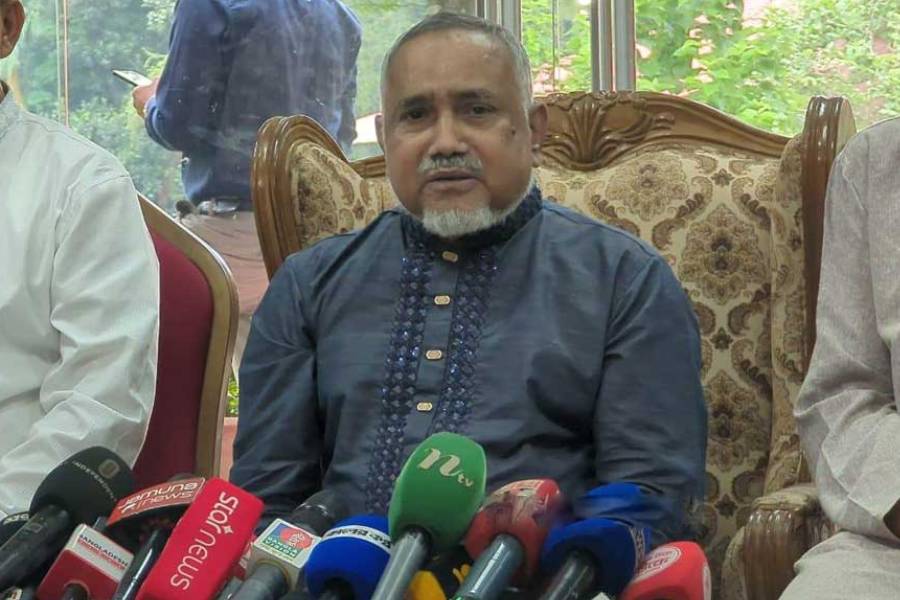Reform blueprint meaningless without legal grounding, says Jamaat deputy chief


Syed Abdullah Mohammad Taher, deputy chief of Jamaat-e-Islami, has said the reform proposals being discussed by the National Consensus Commission will not be implementable unless they are grounded in law.
“It will have no value to the people,” he said during a session on women’s representation in parliament on the 22nd day of the commission’s dialogue in Dhaka on Wednesday.
Taher expressed disappointment with the draft charter circulated by the commission a day earlier, reports bdnews24.com.
“If the reform proposals that we have agreed on after long discussions are implemented properly, a qualitative change is possible in Bangladesh,” he said.
“But we are disappointed to see the draft charter sent by the commission yesterday. It says that these reforms will be implemented within two years. But no time limit has been set regarding the government’s tenure or the commission’s jurisdiction.”
“Does this government want to stay in power for two years? If the next government, not the current one, implements these things, then was the hard work we have done so far just to give advice? Then it will have no value.”
“We assumed from the beginning that through this process, the proposed reforms would get a legal basis and their implementation would be mandatory,” Taher said.
“But if there is no legal basis, then it will remain just words, which the people will not accept or give importance to.”
“A written agreement was made between the chairperson of the commission and BNP leaders earlier, but no real reflection of it was seen at the field level. Not fulfilling the commitment is not only a betrayal, but also a mockery of the people.”
Taher said similar situations have occurred throughout Bangladesh’s 54-year history, and legal gaps have been overcome.
Citing examples, he said that leaders like Ziaur Rahman and HM Ershad came to power through legal processes, formed parliaments, and passed laws.
“There is still an opportunity to provide a legal basis,” he said.
“We want to hold a meeting with legal experts to discuss how these reform proposals can be given a legal basis. It is better to provide that opportunity for discussion now, otherwise, it should be provided at a later time.”
“If this charter proposal is not implementable, if it does not have a legal basis, then it will be just a symbolic document,” Taher added.
“We will not sign it, because what is the point of signing a proposal that has no real value to the people?”


 For all latest news, follow The Financial Express Google News channel.
For all latest news, follow The Financial Express Google News channel.